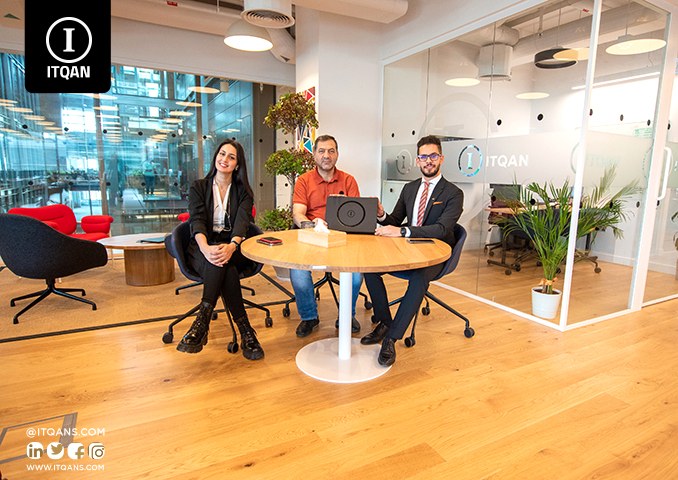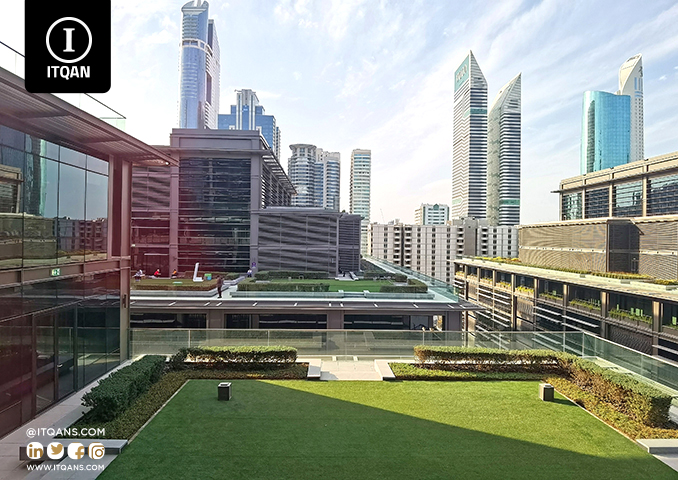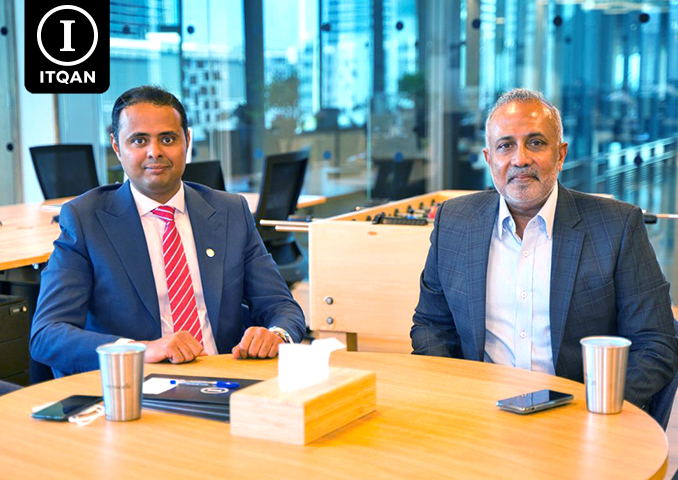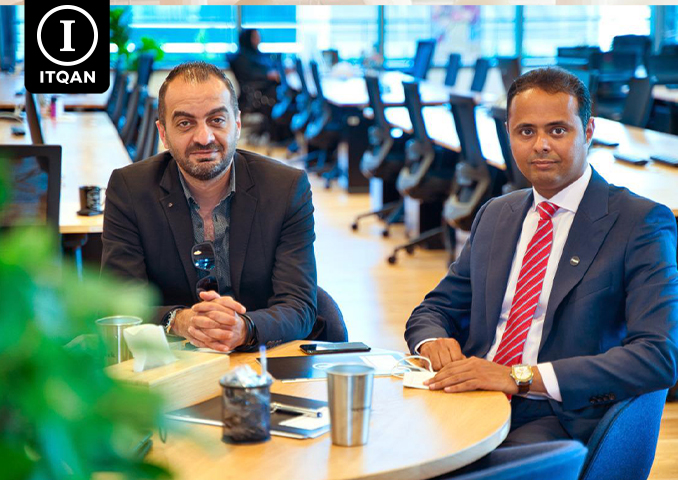. The freedom zones in the Emirates are considered one of the main environments that attract entrepreneurs and investors, as they provide an encouraging environment and an ideal investment climate for establishing companies and expanding businesses. Sharjah International Airport Free Zone stands out as one of the most prominent of these zones that offers a range of opportunities and benefits to investors and those wishing to establish their companies.
The Sharjah International Airport Free Zone is strategically located, making it easily accessible and a hub for commercial and logistical activities. The free zone includes a wide variety of companies and institutions in various sectors, which enhances diversity and provides various opportunities for new and medium-sized companies.
This article aims to explore the basic procedures and steps that must be taken to establish a company in the Sharjah Airport International Free Zone, in addition to focusing on the advantages and benefits that the zone offers to start-ups and medium-sized companies. The advanced infrastructure, integrated logistics services, tax and financial facilities, as well as government and administrative support available to companies will be highlighted.
Through this article, we will seek to provide a comprehensive and comprehensive overview of how to start a company in the Sharjah Airport International Free Zone, and how to make the most of the opportunities and resources available in this leading environment for entrepreneurship and investment.
جدول المحتوى
ToggleAdvantages of establishing a company in the Sharjah International Airport Free Zone
Establishing companies in the Sharjah International Airport Free Zone provides a set of advantages and benefits that attract entrepreneurs and investors, the most prominent of which are:
- Tax facilities:
The free zone offers attractive tax facilities, such as no personal and corporate income taxes, and no taxes on profits made outside the zone. - Ease of entry into the market:
Establishing in the free zone provides easy and quick entry into the UAE market and the surrounding region, which helps expand the scope of business and increase customers. - Advanced infrastructure:
The region is characterized by advanced infrastructure, such as ports, airports, and logistics networks, which facilitates import, export, and distribution operations. - Logistics Facilities:
The region provides integrated logistics services, such as fast customs clearance, secure storage, and express delivery, which helps improve the efficiency of operations. - Government support:
The government provides support and assistance to emerging and medium-sized companies, through entrepreneurship support programs and providing financing, training and consultations. - Flexible Laws:
The region relies on flexible and innovative laws and regulations, which facilitate the work of companies and encourage innovation and development. - Access to global customers:
Companies established in the free zone can access global markets and significantly increase the customer base. - Low Cost:
The region offers low establishment and operating costs compared to other regions, which helps achieve profitability quickly. - High competitiveness:
Companies in the free zone can benefit from high competitiveness and effective exchange of knowledge and experience with other companies.
In short, establishing companies in the Sharjah International Airport Free Zone provides an ideal environment for business, while providing the facilities and support necessary to achieve success and growth.

Determine the appropriate type of company to establish in the free zone
Determining the appropriate type of company to establish in a free zone depends on several factors, including the type of business activity, number of shareholders, liability of partners, and tax and legal preferences. Here are the types of companies that can be established in the free zone:
- Sole proprietorship: owned and managed by one person, and the responsibility of the project owner is unlimited.
Suitable for small businesses and individual projects. - Partnership Company: Owned by a group of partners who share responsibility, profits and losses.
Suitable for SMEs that want to collaborate and share risks. - Limited Liability Company LLC: It is characterized by limited liability for partners, and is suitable for small and medium businesses.
You benefit from tax facilities and legal protection for personal assets. - Public Joint Stock Company (PJSC): Suitable for large companies that want to attract capital from the public by selling shares on the stock exchange.
It has high transparency and the potential to attract capital in large quantities. - Private Joint Stock Company: Owned by a group of private shareholders, and tradable within the company.
It is a suitable option for large companies that want to benefit from equity financing. - Branch of a foreign company: Foreign companies can establish branches in the free zone to expand the scope of their work.
You need a special permit from the local authorities and provide the necessary documents.
Your choices must be consistent with the company’s goals and future plans, and it is preferable to consult Itqan Company for advice tailored to your specific case and details.
Basic procedures for registering and establishing companies in the free zone
The basic procedures for registering and establishing companies in the free zone differ slightly from one country to another and between different types of companies. However, here are general steps that can be included in the company registration process in most free zones:
- Developing a business plan: Before starting the registration process, you must determine the type of company and develop a business plan that includes the goals, expectations, and steps necessary to achieve success.
- Choosing the type and legal formation: Determine the appropriate company type, such as a sole proprietorship, partnership, or limited liability company, and determine its legal formation.
- Determine the name and trademark: Choose a name for the company, ensure it is available and not similar to the names of other companies, and register the trademark if necessary.
- Preparing legal documents: Preparing the required legal documents such as approvals, agreements, licenses, and contracts necessary to start work.
- Submitting a registration application: Submitting a registration application to the competent government authorities in the free zone, submitting the required documents and paying the fees.
- Obtaining licenses and permits: Obtaining the necessary licenses and permits to conduct commercial activity in the free zone, such as a building license or business license.
- Opening a bank account: Opening a bank account in the name of the company to manage financial and commercial transactions.
- Tax registration: Register with local tax authorities and obtain the company’s tax number.
- Labor Registration: Hence registration in labor and social bodies to secure employee rights and labor obligations.
- Insurance and legal liability: Obtaining the necessary insurance to protect the company, employees and property.
- Signing contracts and agreements: Then signing the necessary contracts and agreements with partners, employees, customers and suppliers.
- Starting work: Also after completing all procedures, the actual work of the company can begin and the implementation of the strategic plan can begin.
These are general steps that can be followed to register and establish companies in a free zone, and the details of the procedures can vary based on the conditions and laws of each specific free zone. It is always best to consult an Itqan company
Necessary steps to obtain work licenses and permits
Obtaining the necessary licenses and permits to operate requires several steps, and these steps vary slightly depending on countries and local laws. However, here are general steps that can be followed to obtain business licenses and permits:
- Determine the commercial activity: You must first determine the type of commercial registration in Dubai that you wish to practice, whether commercial, service or industrial, and ensure the availability of appropriate licenses for that activity.
- Legal advice: Before proceeding with the procedures, it is best to consult a lawyer or legal advisor to help you understand local laws and regulations related to business licenses and permits.
- Determine the responsible entity: Then determine the entity responsible for granting licenses and permits, which is usually a specific government entity in the country or region.
- Preparing the required documents: Also collect the documents required for submission, such as a copy of personal identity, personal photos, company incorporation documents if you represent a company, and other required documents according to the type of activity and the responsible party.
- Submitting the application: Also submit an application to obtain licenses and permits to the responsible authority, submitting the required documents and paying the prescribed fees.
- Review and approval: After submitting the application, it is reviewed by the responsible party and studied, and the necessary verification and examination are carried out before the decision is made to approve or reject.
- Payment of fees and permit: Then, if approved, the prescribed fees must be paid to obtain licenses and permits, and then the necessary license or permit is issued.
- Keeping the license and permit: Also, after obtaining the license or permit, you must keep them in a safe place and comply with all the conditions and requirements mentioned in them.
Remember, these steps are general and may require additional procedures or other details depending on the type of business, geographic location, and local laws. Therefore, it is always best to consult Etqan Company to ensure full compliance and success in obtaining the necessary licenses and permits to conduct business legally and properly.
Financial conditions and capital required to start work in the free zone
The financial conditions and capital required to start work in the free zone may vary depending on the type of business activity and the type of company you wish to establish. However, here are general details on the financial conditions and capital required:
- Type of commercial activity: You must also determine the type of commercial activity that you wish to practice, whether commercial, service, or industrial, according to the activities permitted in the free zone.
- Company type: Companies of different types can be established, such as sole proprietorship, partnership, limited liability company, or public company, and each type requires different capital.
- Basic capital: Then you must determine the basic capital required to establish the company and start work, which varies according to the type of company and the requirements of local laws.
- Fees and costs: The process of establishing and starting a business may also require paying registration fees, licenses, and other financial costs, which must be taken into account in financial planning.
- Insurances and financial obligations: The necessary insurances for the company, employees and property must also be considered, in addition to potential financial obligations such as taxes and administrative fees.
- Operating budget: Therefore, a realistic operating budget should be prepared that contains estimates of expected revenues, expenses, profits and losses during the beginning period.
- Financial support: It is also possible to obtain financial support from investors, banks, or entrepreneurship support organizations to finance the start of the business and pay the costs.
- Bank accounts: Then you must open a bank account for the company to manage financial and commercial transactions.
- Compliance with local laws: You must also adhere to all local financial, tax and accounting laws in the free zone.
It is also always encouraged to consult with Itqan Company to help you determine the financial conditions and capital required to start work in the free zone and ensure full compliance with local laws and legislation.

Our role in establishing your company in the free zone
Itqan Company plays an important role in the process of establishing companies in free zones, as it provides comprehensive services and solutions that facilitate and accelerate the establishment process and provide the necessary support to emerging companies. Here is the role of Itqan Company in establishing your company in the free zone:
- Legal and financial consultations: Thus, providing specialized legal and financial consultations to help you understand the legal and financial procedures and requirements for establishing a company in the free zone.
- Providing accurate information: Then providing accurate and comprehensive information about the types of companies allowed in the free zone and the financial and legal requirements for each type.
- Assistance in developing strategic plans: Also assistance in developing business plans and strategies necessary to start and develop the business.
- Preparing documents and procedures: We also provide support in preparing the legal documents necessary to register and establish the company, such as agreements, decrees, and contracts.
- Providing administrative services: We also provide administrative services such as financial management, accounts, and human resources management.
- Company registration and licenses: Thus providing support in the process of registering the company in the free zone and obtaining the necessary licenses and permits.
- Logistical support: We also provide logistical support to find a suitable location for the company and secure the necessary offices and facilities.
- Assistance with tax and legal matters: Then providing support on tax issues and local laws related to the establishment and operation of the company.
- Communication with relevant authorities: Also representing the company and communicating with government agencies and private organizations to facilitate the establishment process and obtain the necessary approvals.
- Providing integrated support: We also provide integrated support that includes all legal, financial and administrative aspects to ensure a successful start of the company’s work.
In short, Itqan plays a comprehensive and vital role in the process of establishing companies in the free zone, providing support and assistance in all legal, financial and administrative aspects to ensure the success of the startup.
A future vision for establishing companies in the Sharjah International Airport Free Zone
After exploring the depth of the process of establishing companies in the Sharjah International Airport Free Zone and analyzing its advantages and procedures, it remains to look at the future prospects and potential challenges facing entrepreneurs in this pioneering environment.
In recent years, the Sharjah International Airport Free Zone has witnessed a remarkable growth in the number of new companies established there, and it has transformed into a vibrant center for business and investment. The region boasts advanced infrastructure, tax facilities, and superior logistics services, making it an ideal destination for entrepreneurs seeking to establish their companies and expand their businesses.
However, the real challenges facing startups, such as intense competition, rapid technological developments, and changes in the global market, remain challenges that must be faced with caution and professionalism. New businesses need strong strategies and sustainable visions to succeed and grow in this competitive environment.
However, opportunities for growth and prosperity remain great in the Sharjah Airport International Free Zone, thanks to ongoing developments and continued government support. The region constitutes a vibrant environment that provides new companies with various opportunities to flourish and expand.
We also conclude our article on establishing companies in the Sharjah International Airport Free Zone, emphasizing that will, dedication and innovation represent the main factors in building the success of companies and achieving their goals in this dynamic and evolving environment.
Frequently asked questions about establishing a company in the Sharjah International Airport Free Zone
What are the steps for establishing companies in the Sharjah International Airport Free Zone?
Establishing companies in the free zone includes procedures such as submitting a registration application, determining the type of company and activities, and submitting the necessary documents.
What are the main advantages of establishing companies in Sharjah Airport International Free Zone?
Advantages include tax and customs facilities, advanced infrastructure, easy registration procedures, and access to a global market.
What types of companies can be established in the free zone?
Local companies and subsidiaries of foreign companies can be established, in addition to sole proprietorships and joint stock companies.
What documents are necessary to establish companies in the free zone?
Necessary documents include a passport, a certificate of good conduct, and company incorporation documents.
What is the approximate cost of establishing companies in the free zone?
The cost depends on the type of company, activities and services required, and specialized consultations can be obtained to determine the cost accurately.
What additional services are available to companies in the free zone?
Additional services include logistical support, financial and tax facilities, government support and assistance with immigration and employment procedures.
Can foreign companies establish branches in the free zone?
Yes, foreign companies are allowed to establish branches in the free zone provided that they comply with local laws and regulations.
What commercial activities are allowed in the free zone?
Permitted business activities include a wide range of sectors such as manufacturing, financial services, trade, technology, and entertainment.
Does the free zone provide support for entrepreneurship and innovation?
Yes, the free zone provides support programs for entrepreneurship and innovation, including seed funding, workshops and innovation competitions.
What are the next steps after establishing the company in the free zone?
The next steps include expanding the business, building customer networks, developing services and products, and achieving sustainable growth.













